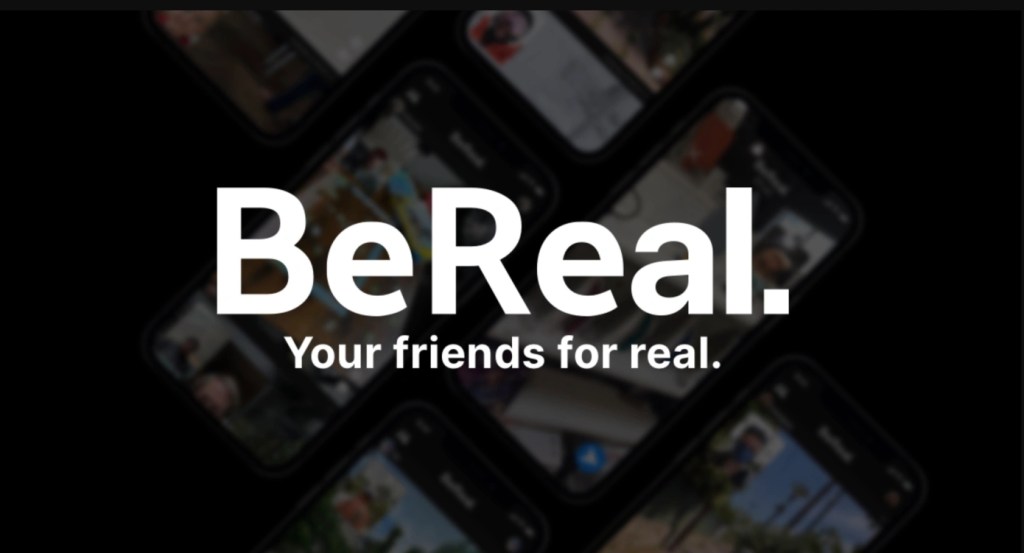During a recent Twitter Space, M13 Partner Anna Barber and I looked back at the dot-com crash in search of lessons operators can use to avoid missteps founders have made in past downturns.
In our conversation, Barber spoke about how founders can better align with investors and employees while managing uncertainty, the dangers of growing too quickly and the economic, social and emotional impacts created when so many companies close their doors at once.
I was part of the first wave of tech workers who flooded San Francisco during the dot-com era.
So many companies were flocking to the Bay Area that the vacancy rate for rental housing was less than 1% when I arrived. The apartment complex my employer used for temporary housing became my home for several years; a co-worker who’d moved cross-country euthanized his cat because he and his pregnant partner were unable to find a pet-friendly landlord.
I was clueless about startup operations, financing and venture capital, but I didn’t need to be an economist to realize that most of the companies I worked for lacked solid fundamentals. The very startups that offered in-house massages, catered meals, laundry service and oil changes in the parking lot were also purchasing Super Bowl ads and freeway billboards as their stock prices fell and quarterly losses mounted.
Still, our team-building exercises included cooking classes, go-kart races and trips to local driving ranges. One black-tie work party I attended caused a run on several area tuxedo rental shops. When my company’s softball team played against Yahoo! (which insisted that everyone use the exclamation point), you should have seen the other players’ faces when we announced substitute players Barry and Bobby Bonds.
“The macroeconomic market is just noise”
“Line goes up” is not a new vibe. As Wikipedia’s Dot-com Bubble Crash page aptly explains, the Nasdaq composite rose 400% between 1995 and 2000, and everyone who mattered acted as if the party would never end. The economic conditions that created the current downturn aren’t the same as those that burst the bubble, but many of the lessons learned are relevant to today’s founders and startup workers, most of whom have never experienced lean times.
I have crates from Webvan, a grocery delivery service that failed so spectacularly that MBA candidates still use it as a case study. Like Kozmo.com, Petstore.com, eToys and other companies that delivered consumer packaged goods, Webvan hemorrhaged cash, earned tons of enthusiastic press coverage, and its backers were content to ride things out until it left behind a smoking crater. (And thousands of reusable plastic storage bins.)
Previously the managing director of Techstars and a founding partner at the Fund LA, M13 Partner Anna Barber was on the front lines of the pet-food wars: She was VP of product at Petstore.com when the company was sold off in a fire sale.
“We laid off our staff except one person who stayed around with the CEO to help wind down the company and settle up with all our creditors,” Barber said. “That person was me.”
Although Petstore.com launched early and aired a Super Bowl commercial, other cash-rich startups also took to the airwaves to announce themselves and drum up new customers. Its founders raised $90 million, but without any effective means to target their advertising, “we found ourselves in this bloodbath of customer acquisition,” she recalled.
The company initially set up shop in a small facility in Emeryville, California, just a short distance from the Bay Bridge, but a year later, demand forced them to scale up to a 100,000-square-foot warehouse. Like a horde of unprofitable startups, Petstore.com’s founders planned to go public. Instead, the company ended up in the clutches of Pets.com, a competitor that had squeaked through the IPO window before it slammed shut.
“The market changed so quickly, we weren’t kind of given the time and space to figure it out,” said Barber. “One thing that was different from today is that a lot of people thought the whole tech industry was just going to go away.” Inside hundreds of startups, this sudden reversal of fortune challenged Silicon Valley’s prevailing narrative that these were world-changing companies.
“The macroeconomic market is just noise that you have to cut up,” said Barber. “Don’t believe your own press, right?” Instead of instinctively going into survival mode, she said founders should ask themselves existential questions like, “Why did you start this business? What are the fundamentals? Who are your customers? What problem are you solving?”
“Trust is more important than ever”
Many first-time founders have been encouraged to believe that good storytelling and social skills are enough to convince investors that things are moving according to plan, but they are mistaken.
“At a time like this, trust is more important than ever,” said Barber, adding that she tells entrepreneurs to stay in close touch, “particularly around bad news.” Before problems arise and between regularly scheduled meetings, entrepreneurs should get comfortable with asking for help and advice.
“Tell them what you need. This is what we’re here for: to roll up our sleeves and help problem-solve with you. Nobody expects any of this to be smooth sailing.”
Conventional wisdom that downplays the importance of basics like robust product design and customer outreach will not see your company through this downturn. “We’re not looking for growth at all costs,” said Barber. “We’re thinking more critically about what product programs and initiatives you’re running, and how they are contributing to your bottom line.”
If you’re worried about taking up too much of your investors’ time, get over it: Reaching out to share an update or ask a question sends a strong signal that you’re not waiting for someone to give you direction. As an example, Barber mentioned a CEO who recently announced a round of layoffs before consulting with their board.
“She had already done a review with her team and made some cuts, given initiatives that they weren’t going to be doing in this current market,” she said. “I was like, ‘Wow, she’s gotten ahead of this issue; she’s being proactive and also over-communicating with her investors.’ It built my confidence in her ability to navigate.”
“Everything is negotiable”
The pandemic has changed the very nature of work, so few startups are still blowing cash on in-house yoga instruction or kombucha bars. Almost every founder starts trimming headcount to extend runway, but starting with layoffs may be overkill, depending on the situation.
Barber, who was responsible for handling Petstore’s liabilities after the company was acquired, noted “everything is negotiable.” For example, a team that is burning too much cash on office space should simply ask their landlord for a reduction.
“Your vendors would rather have you stay in business and have a healthy company than go out of business and lose you as a customer,” Barber said. “Where can you negotiate? Where can you change deal terms so that maybe you’re not paying for something until you get the revenue associated with it?” Besides actively negotiating, she advises portfolio companies to take full advantage of credit programs, many of which are available to VCs.
Reorganizing customer acquisition programs so companies only pay after new users are secured is another way to tamp down costs, she advised. Teams looking for new financing have many more options today than founders enjoyed during the dot-com era.
“There are so many creative financing vehicles available today, whether it’s revenue-based financing [or] inventory financing,” she said. “The companies providing this financing are looking to say yes, so give them something to work with and you may be surprised what you can line up in terms of the way of debt financing. And you can do all of that without touching your headcount.”
“When you can no longer learn affordably,” it’s time to quit
To appreciate the psychology of the dot-com era, it’s critical to understand how much wealth was created in such a short period of time. “Going public was the brass ring,” Barber said, but “in 1999, we had companies that were going public in a 12- to 18-month time frame. It was crazy, and you just don’t see that in today’s market.”
I suspect that founders who dream of ringing the opening bell are generally as successful as aspiring actors who practice their Academy Awards acceptance speeches in the bathroom mirror. More than ever, this is a time for entrepreneurs to show not tell. “You’ve got to be focused on building something great that consumers love,” said Barber. “If you do that, eventually an exit will come your way.”
Trying to go public and creating economic value are different goals. Given the long odds and effort attached to IPO dreams, startup workers no longer have the same stars in their eyes as they did in the dot-com era.
“People want to build something and work on something they feel is important and has value and meaning,” she said. “You’re never going to get employees excited if you say, ‘We’re never selling this company, we’re going to be private forever.’”
Most tech reporting is relentlessly positive, often eliding the emotional costs that attend spinning up an early-stage company. With that in mind, I asked Barber to share her thoughts about when founders should shut off the lights and go home.
“I had a company I started, and looking back, I probably spent two years longer on it than I should have,” she responded.
“So I would say it’s when you can no longer learn affordably. Being a founder is all about learning and finding your way to product-market fit and growth. And when you can no longer afford to do that because the amount of money you need to raise for the next learning cycle is too great, or capital isn’t available, that might be time to throw in the towel.”
Similarly, ample runway isn’t a good enough reason on its own to keep grinding, she added.
“When you no longer believe — if you’re not buying what you’re selling anymore, then it is time to stop,” she said. “And that is incredibly painful. I’ve seen that happen to founders where they lose confidence in their own idea, and you’ve just got to stop.”
Running out of money is a legitimate reason to wrap up, but “hopefully, it doesn’t get to that point,” said Barber.
“It’s really important, if you think you’re getting near this point, to over-communicate with your team and your investors. There are ways of exiting your company and finding an outcome even if you’ve decided you can no longer continue growing it, but you need some runway to get that done. So get ahead of it if you think it’s heading in that direction.”
The good news: It’s much easier to launch a startup than it was 25 years ago, which is one reason why so many are struggling, said Barber. In the old days, teams need to buy and set up a server farm before they could launch an e-commerce operation. Today, founders just need some cloud credits.
“The amount of funding you need to continue to learn affordably has gone down dramatically,” she said. “That should give people who still believe in what they’re building and are excited to continue an opportunity to do that in a way that’s leaner and more efficient.”






























Comment